Celia Desmond Full Interview
Model
Video
Abstract
Electrical engineer Celia Desmond describes her unusual entry to an engineering career and her subsequent professional achievements. Her first work at Telco involved applying queuing theory to the management of shared data lines and then standardizing equipment that would connect to computer networks. She spent a year in the Human Resources department and then moved into customer support and project management. She then founded her own company, World Class Telecommunications, that primarily trained engineers about telecom network planning and implementation. She briefly describes several projects, including: reclassifying modems as computer accessories to reduce the duty from 17% to 3%; creating secure networks to support government leaders at a T7-type meeting; and, establishing certification for wireless communications engineering companies. She also emphasizes: the need for career transitioning; and the value of business, soft, and communication skills in a technical environment. She describes volunteer roles, primarily with the Institute of Electrical and Electronic Engineers (Canada), and offers advice to high school students considering careers in engineering and to new engineering graduates. She also describes a personal hobby, making reproductions of antique porcelain dolls.
Member of
